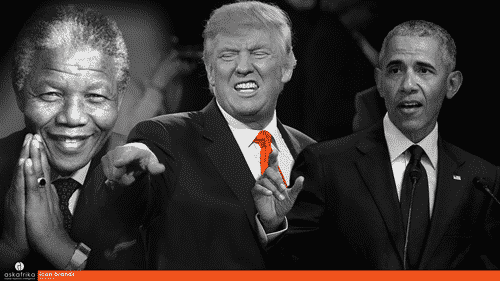To disrupt or not to disrupt? That is the question
 We are living in times of change and unpredictability, and this social milieu translates into a drive to disrupt. Disruption is in vogue within the marketing fraternity and is frequently the go-to for almost every brand strategy. This creates hype, but how many brands actually disrupt their market landscape? More importantly, is it in every brand’s best interest to disrupt, asks Maria Petousis.
We are living in times of change and unpredictability, and this social milieu translates into a drive to disrupt. Disruption is in vogue within the marketing fraternity and is frequently the go-to for almost every brand strategy. This creates hype, but how many brands actually disrupt their market landscape? More importantly, is it in every brand’s best interest to disrupt, asks Maria Petousis.
If we think about how society experiences disruption, it leaves us feeling a little confused, unfocused and disengaged. Disruption brings chaos and uncertainty. It is not closely linked with trust and loyalty, yet brands want loyal consumers and consumers want brands they can trust.
Brand image is often sexy, but it’s not real – and we need to start considering what is real for us as human beings and about sustainable impact, instead of co-creating a lack of trust and loyalty through double standards.
To better understand disruption, we can look at leaders as brands. Nelson Mandela and Kofi Annan were iconic leaders: they stood for the greater good, representing loyalty, stability and predictability. These leaders represent true Icon Brands.
There are disruptors who disrupt for the sake of disrupting. They shout for attention and make a lot of noise – for example, United States President Donald Trump. Similarly, wannabe disruptor brands may include telecommunications companies and banks with similar product and service offerings that are not really doing anything to change the market landscape.
Real disruptors stand for sustainable change, clear direction, reconsidering assumptions, making sound judgment calls, and doing what’s right and good. They are courageous and don’t mind not following a mainstream view.
Examples of real individual disruptors include New Zealand Prime Minister Jacinda Ardern, Canadian Prime Minister Justin Trudeau, or former US president Barack Obama, and Jack Ma, a Chinese business magnate, investor, philanthropist and the co-founder and executive chairperson of the Alibaba Group.
Real disruptor brands include Airbnb, Uber, Netflix and Google – these brands have fundamentally changed the way things are done within their product categories and provide an enhanced product or service to consumers.
Ask Afrika’s Icon Brands are loved and used loyally by South African consumers across the entire demographic spectrum. The Icon Brands survey measures 158 product categories, and only 40 brands in 19 product categories achieved Icon Brand status.
Not all brands should be disruptive
Some brand marketing strategies strive to disrupt, but the reality is that not all brands can or should be disruptive. Icon Brands are established leader brands in their product categories, with a loyal consumer base. The job of the brand owner is to entrench and grow this loyalty and market share, since brands can’t be both the incumbents and the disruptors.
Icon Brands are defined by solus usage: consumers are loyal to only one brand in the category and most will choose the same brand every time. The general trend is towards increasing non-solus usage – or an expanding repertoire of brands that consumers choose between within a category, driven by convenience. Certain product categories have a narrower brand repertoire, while others have a broader repertoire that consumers switch between.
The change in loyalty has altered the philosophy of buying. A brand manager’s job has become increasingly difficult. Loyalty goes beyond quality, price and reliability. It is about innovatively combining many strategic elements and touchpoints to work together, creating a memorable brand experience that is relevant to its target audience on a deep emotional level.
Brand owners want loyal consumers, yet they often target non-loyalists with disruptive marketing strategies. The psychographic profile of loyalists makes them seem boring, with traditional life values, while non-loyalists appear exciting, with utopian life values. Marketers aspire to reach non-loyalists because they can craft a more “attractive” brand personality when aligned with these attitudes, yet it is the loyalists who actually buy and use the brand. Icon Brands exist precisely because of loyalists. There is a disconnect that needs to be considered when crafting a marketing strategy.
Loyal brand consumption (or lack thereof) can inform meaningful marketing campaigns through integrated media strategies that drive relevant product/brand strategies to different target markets. This can also inform marketers about whether a disruptive brand strategy is appropriate.
Advice for marketers
The overall take-out for marketers is: don’t raise your voice – rather improve your message. Don’t create chaos with different marketing messages and disrupt for the sake of it. Innovation needs to be linked to scalability. Decide on who you are in terms of brand personality, then think about purpose and sustainability. Educate consumers and heed their call for loyal and trustworthy leadership.
Loyal brand consumption (or lack thereof) can inform meaningful marketing campaigns through integrated media strategies that drive relevant product/brand strategies to different target markets. This can also inform marketers about whether a disruptive brand strategy is appropriate.
